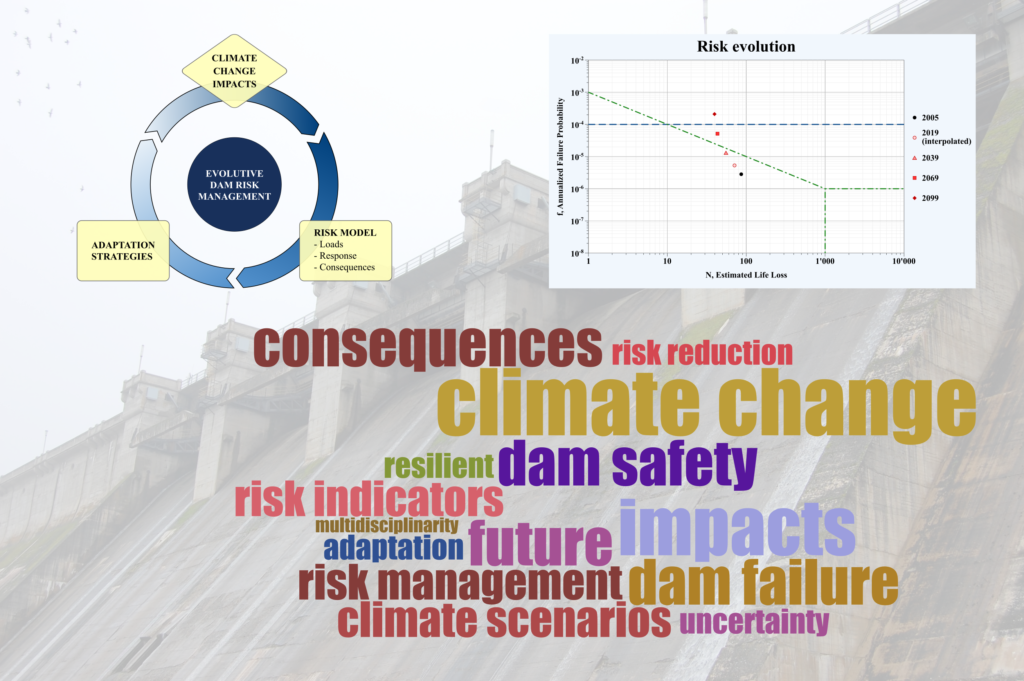The thesis Adaptation strategies of dam safety management to new climate change scenarios informed by risk indicators proposes a comprehensive approach to incorporate climate change impacts on dam safety management and decision-making support. The goal is to design adaptation strategies that incorporate the non-stationarity of future risks as well as the uncertainties associated with new climate scenarios.
Based on an interdisciplinary review of the state-of-the-art research on its potential effects, the global impact of climate change on dam safety is structured using risk models. This allows a time-dependent approach to be established to consider the potential evolution of risk with time. Consequently, a new indicator is defined to support the quantitative assessment of the long-term efficiency of risk reduction measures. Additionally, in order to integrate the uncertainty of future scenarios, the approach is enhanced with a robust decision-making strategy that helps to establish the consensus sequence of measures to be implemented for climate change adaptation. Despite the difficulties to allocate probabilities to specific events, such framework allows a systematic and objective analysis, reducing considerably the subjectivity.

Such a methodology is applied to a real case study of a Spanish dam subjected to the effects of climate change. The analysis focus on hydrological scenarios, where floods are the main load to which the dam is subjected. The results provide valuable new information with respect to the previously existing analysis of the dam regarding the evolution of future risks and how to cope with it. In general, risks are expected to increase with time and, as a result, new adaptation measures that are not justifiable for the present situation are recommended. This is the first documented application of a comprehensive analysis of climate change impacts on dam failure risk and serves as a reference benchmark for the definition of long-term adaptation strategies and the evaluation of their efficiency.
Download
You can download the thesis here:


